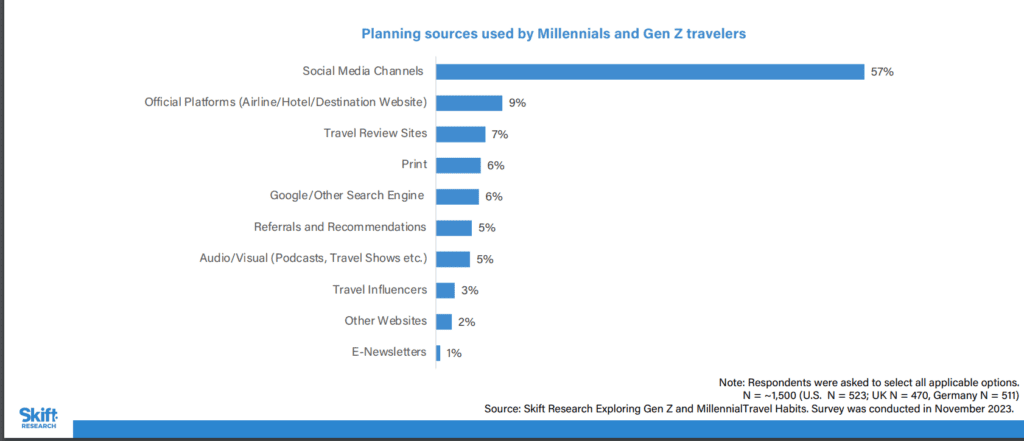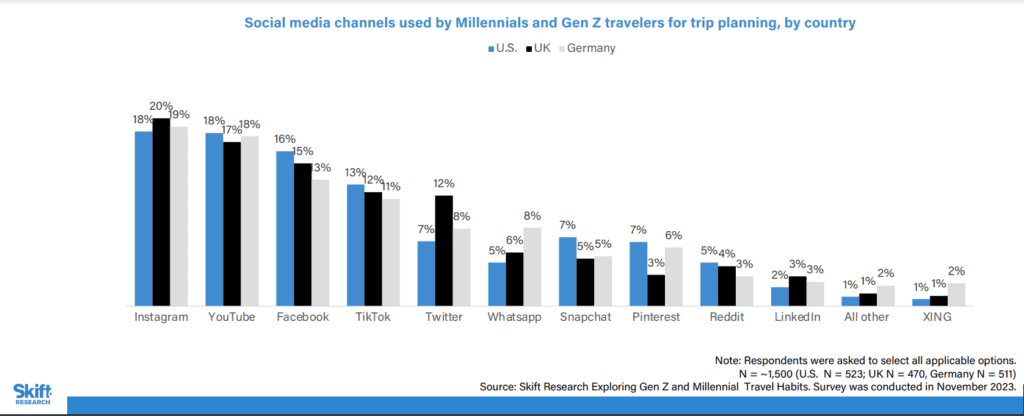Skift Take
This move of tapping into influencer marketing is part of a broader push to digitally transform Thailandâs tourism industry. This also keeps pace with a global trend where social media personalities play a significant role in shaping travel choices.
Thailand is redefining its approach to tourism promotion by harnessing the power of digital influencers.
The Tourism Authority of Thailand (TAT) has officially launched “TAT Connex,” an influencer marketing platform designed to amplify the visibility of Thai tourism businesses and inspire more travel to the country. The initiative aligns with TAT’s broader strategy of integrating digital transformation into the tourism industry.
TAT Governor, Thapanee Kiatphaibool, emphasized the platform’s potential to enhance brand visibility and stimulate tourism spending across various destinations in Thailand.
What is TAT Connex?
The platform, accessible via both mobile apps and its website, welcomes a diverse range of influencers, including key opinion leaders (KOLs), bloggers, media, and celebrities. These influencers can connect with tourism-related businesses across 10 categories, from hotels, homestays and restaurants to travel agencies, shopping centers and tourist attractions.
TAT Connex also offers real-time campaign tracking and data analysis via social media platforms including Facebook, Instagram, TikTok and X (Twitter), enabling businesses to optimize their marketing efforts.
TAT activated the Connex platform earlier this month, allowing businesses and influencers to register in advance through its app and website.
During the official launch, the organization held a workshop to guide influencers and businesses on effectively using the platform.
This initiative forms part of the country’s broader “Ignite Thailand’s Tourism” vision, aimed at reviving the tourism sector post-pandemic. TAT Connex is free to use, available in both Thai and English, and is expected to play a key role in attracting more tourists to the country.
Thailandâs Focus on Chinese Influencers
TATâs influencer-driven strategies are not limited to this platform alone. In a bid to regain Chinese touristsâ a significant part of Thailand’s tourism market â the authority launched several targeted campaigns.
In late December last year, TAT hosted 93 top Chinese influencers to explore Thailandâs cultural experiences, aiming to rebuild confidence and attract visitors after a challenging period for tourism.
This came after Chinese arrivals to Thailand nosedived following the shooting incident at Bangkokâs Siam Paragon shopping mall in October.
Social media influencers play a crucial role in driving travel decisions among Chinese tourists, especially among younger travelers, a recent report by Finn Partners highlighted.
Earlier Chinese consumer sentiment research by Dragon Trail suggested that Thailand continues to struggle with perceptions of safety.
China is a major tourism source market for Thailand. Chinese tourists alone accounted for more than 3.4 million visitors in the first half of 2024.
On Monday, TAT announced ‘Nihao Month’ and set a target for the event to bring 250,000 arrivals from China during the upcoming Golden Week. The holiday period begins on October 1.
Social Media for Travel Planning
As part of Thailand’s ambitious goal to draw 40 million visitors in 2024, the country wants to double the number of Chinese tourists to 8.2 million.
Moreover, TAT has also partnered with TikTok Thailand for the “Amazing Thailand Passion Ambassador” campaign, inviting travelers to create content that showcases more meaningful travel experiences. With prizes worth THB 2 million, the project seeks to generate high engagement and inspire more travelers to visit Thailand.
The campaign launched on August 1, with submissions open until August 31, and winners announced on September 15 via Amazing Thailandâs social media accounts.
Earlier in March, Thailand hosted 27 influencers from Malaysia, Indonesia, Vietnam, India, the Philippines, Singapore and Brunei.
Skift Researchâs âExploring Gen Z and Millennial Travelâ report launched in January highlights the influence of digital platforms on travel decisions. It found that 57% of respondents rely on social media channels for travel planning.


Instagram, YouTube, and Facebook are primary platforms for travel inspiration, indicating a shift towards online and visual mediums, according to the report. Gen Z displays a clear preference for TikTok and Snapchat.



